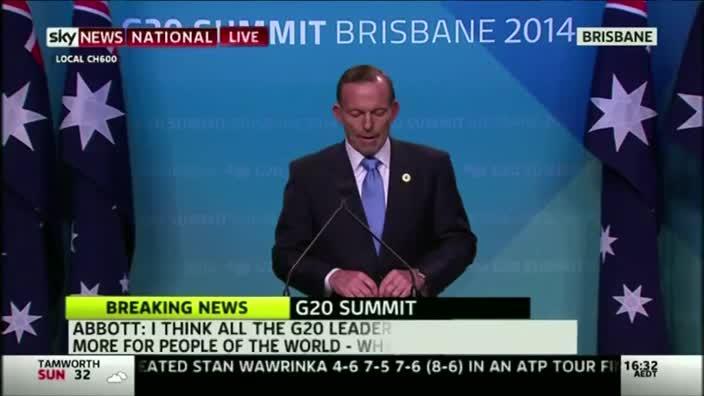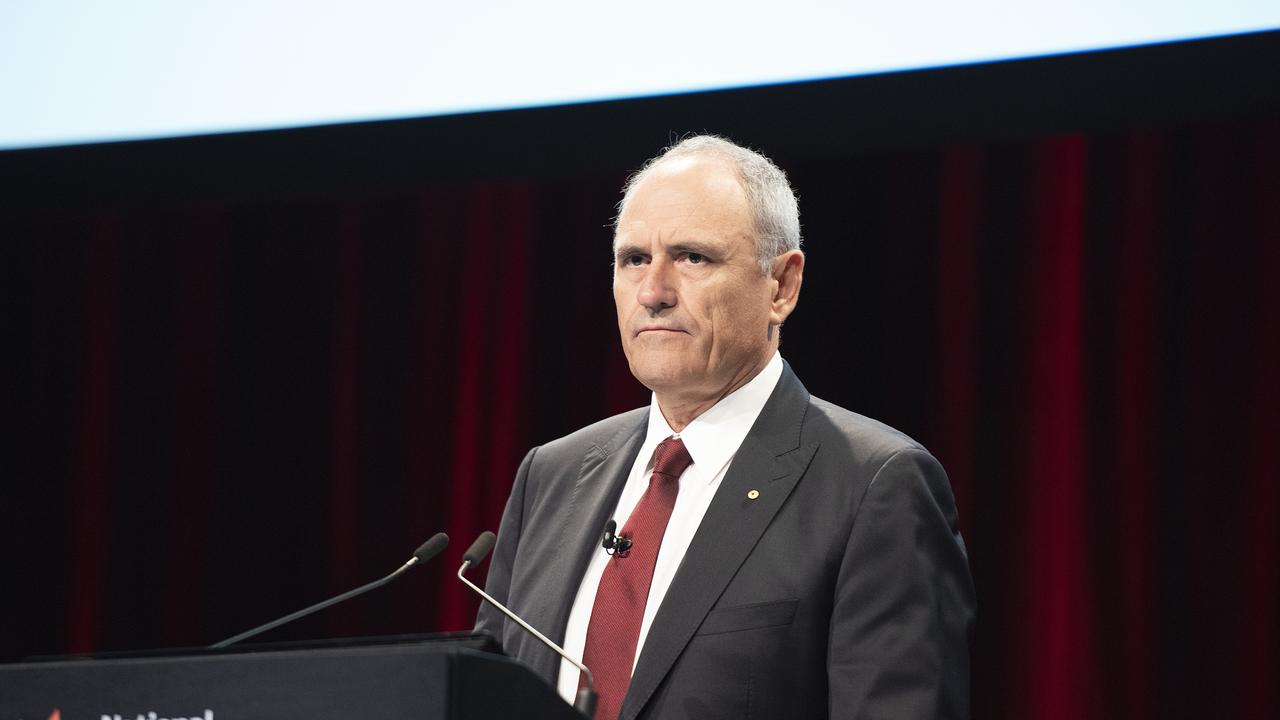Oversight to ensure growth targets met
THE G20 nations have for the first time agreed to implement specific policies to meet the growth challenge set by Joe Hockey.

THE G20 nations have for the first time agreed to implement specific policies to meet the growth challenge set by Joe Hockey in February to raise their output by more than 2 per cent by 2018.
Despite slowing economic growth in most advanced and developing countries, the 19 countries plus the EU have listed more than 800 measures to boost their growth rates and agreed to subject themselves to an annual check-up overseen by the International Monetary Fund and the OECD.
The G20’s growth strategy, the Brisbane Action Plan, also includes commitments that nations will not engage in competitive devaluations and will work to collaborate on economic policy.
“The G20 meeting has reset the international growth agenda with sensible policies that can be applied both collectively and within individual nations,” said Business Council of Australia chief executive Jennifer Westacott.
The plan says: “The state of the global economy calls for a comprehensive and coherent policy response that restores near-term demand, removes medium-term supply constraints and builds consumer and business confidence.
“These strategies comprise macro-economic policies that respond to near-term demand concerns as well as step up in structural reforms to increase growth potential.”
It also points to better-quality public and private infrastructure investment, boosting trade and lifting employment participation.
The Australian government’s contribution to boosting growth includes nothing that had not been announced before the summit.
It rests mainly on the as yet unlegislated measures in the May budget and longstanding Coalition promises, including cuts to the company tax rate, a beefed-up paid parental leave scheme, deregulation of university fees and Medicare co-payments.
The US government has undertaken to try to lift the federal minimum wage from $US7.25 ($8.25) to $US10.10 an hour to make economic growth more inclusive and boost domestic demand, and flagged completion of pathbreaking new trade deals with Europe and Pacific nations.
Britain highlighted its planned construction of high-speed rail linking northern English cities, and simplification of income tax and childcare subsidies for workers.
Analysis by the IMF and OECD suggests the measures will lift collective GDP by 2.1 per cent, or more than $US2 trillion, compared with official growth projects from the beginning of the year, and have the side-effect of boosting growth of non-G20 nations by 0.5 per cent. A quarter of the impact depends on the positive spill-over effect of simultaneous implementation of new policies by all the countries.
G20 nations applauded efforts under way in Argentina, Australia, Brazil, India, Korea, Mexico, Saudi Arabia and the US to boost infrastructure spending but acknowledged the importance of keeping public debt, which in most G20 countries blew out unsustainably after the global financial crisis, at a manageable level.
Thomas Bernes, a distinguished fellow at the Centre for International Governance Innovation, was sceptical that the growth target would be met, noting the failure of an IMF-led growth target endorsed at the 2010 G20 meeting.
“In fact, growth turned out to be lower even than the worst-case scenario the IMF presented,” he said, speaking hours before the latest communiqué was released.
His colleague at CIGI, Bessma Momani, said governments would have more success boosting infrastructure spending, which was popular, than they would changing tax codes or structural reforms that created vocal losers.
Since Joe Hockey announced the 2 per cent target in February, the IMF has repeated downgraded its global growth forecasts by about $US900 billion over the years to 2018.



